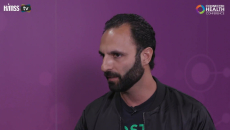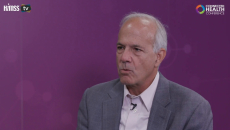interoperability
Verato CEO Mark LaRow says momentum is building around finding more effective means of patient identity and matching, and his company's referential matching technology can help.
Marc Probst, longtime CIO at Intermountain Healthcare and new CIO at ELLKAY, also discusses digital transformation and the cost challenges facing healthcare now – as well as the IT innovation he sees emerging from the COVID-19 crisis.
John D'Amore, president and cofounder of Diameter Health, discusses the future of interoperability in the U.S.
Deep Dive: There have been delays in compliance deadlines for long-awaited interoperability rules, but recent days only highlight the pressing need for greater access to health data.
Technology issues for interoperability are more of a cultural than a deployment challenge, explain Drew Ivan, Lyniate's chief product and strategy officer, and Matthew Michela, CEO of Life Image.
The pandemic's long-term impact on acute and post-acute care will be more detailed documentation and a greater emphasis on event notification services to track care progression, explains Brightree VP Nick Knowlton.
Drew Ivan, EVP of product and strategy at Rhapsody, talks about why, compared to other industries, it has been difficult for healthcare to tackle the interoperability challenge.
Ardy Arianpour, founder and CEO of Seqster, says by collecting users' EHR, DNA and wearables data, his company's technology is helping drive "person-centric interoperability."
Grahame Grieve, FHIR product director for HL7 International, says not only is FHIR a standard for exchanging healthcare data, but it is also a community of people who aims to create a "public treasure" that we all own.
Daniel Stein, president of the Stewards of Change Institute, says his group is convening diverse industry stakeholders to tackle big challenges such as patient matching.









